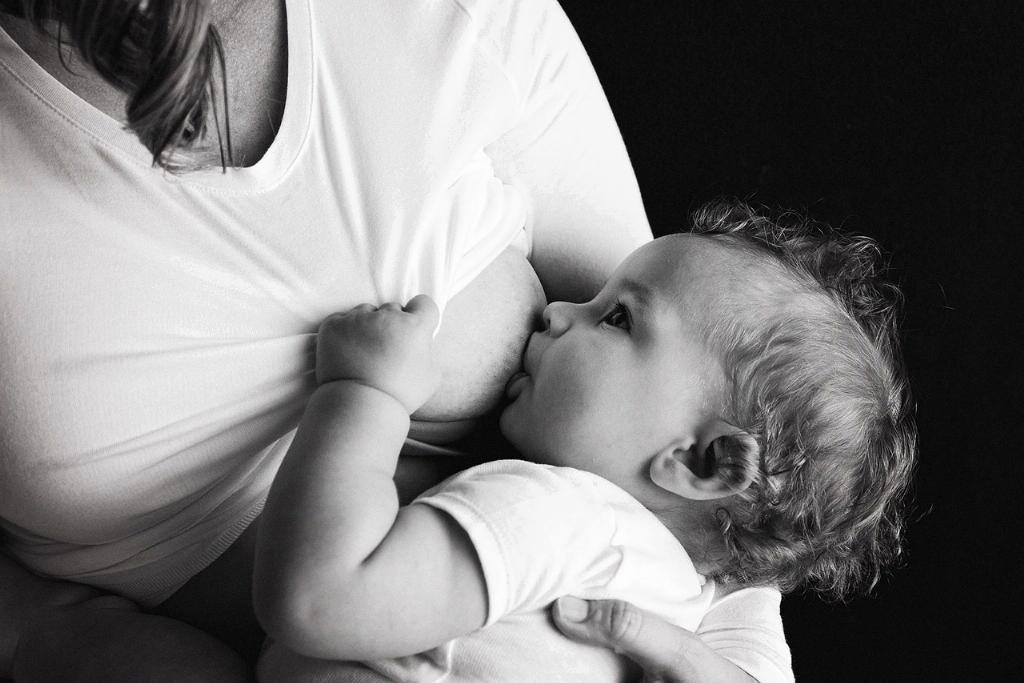When we talk about exclusive breastfeeding, we are referring to a specific and crucial aspect of infant nutrition. Exclusive breastfeeding entails providing your baby with only breast milk, and no other form of food or drink. This means that for the first six months of life, the baby receives nothing but breast milk, which serves as their sole source of nourishment.
The Composition of Breast Milk
Breast milk is a remarkable substance, perfectly designed to meet the nutritional needs of a growing infant. It contains essential nutrients, antibodies, and growth factors that help the baby thrive and build a strong immune system. The composition of breast milk changes over time to adapt to the baby’s evolving needs, making it the ideal source of sustenance for an infant.
The Benefits of Exclusive Breastfeeding
There are numerous benefits associated with exclusive breastfeeding for both the baby and the mother. For the baby, breast milk provides protection against infections, reduces the risk of allergies, and promotes healthy growth and development. It also fosters a strong bond between the mother and the baby, creating a sense of security and comfort.
The Guidelines for Exclusive Breastfeeding
According to the World Health Organization (WHO) and the American Academy of Pediatrics, exclusive breastfeeding is recommended for the first six months of a baby’s life. During this period, the baby should receive only breast milk and no other liquids or solids, including water. After six months, complementary foods can be introduced while breastfeeding continues up to two years or beyond.
The Importance of Exclusivity
Exclusivity in breastfeeding is crucial because it ensures that the baby receives the full benefits of breast milk without any interference from other foods or drinks. Introducing other liquids or solids too early can disrupt the balance of nutrients in breast milk and may increase the risk of infections and allergies in the baby.
The Challenges of Exclusive Breastfeeding
While exclusive breastfeeding is highly beneficial, it can also pose challenges for some mothers. Issues such as latch problems, low milk supply, and discomfort while nursing can make it difficult to exclusively breastfeed. Seeking support from healthcare providers and lactation consultants can help address these challenges and ensure successful breastfeeding.
The Role of Maternal Nutrition
Maternal nutrition plays a crucial role in exclusive breastfeeding as the quality of breast milk is directly influenced by the mother’s diet. It is essential for breastfeeding mothers to consume a balanced diet rich in nutrients to support their own health as well as the production of high-quality breast milk for their baby.
The Impact on Maternal Health
Exclusive breastfeeding also offers significant benefits for maternal health. It helps mothers recover from childbirth more quickly, reduces the risk of postpartum depression, and lowers the likelihood of developing certain health conditions such as breast and ovarian cancer. The act of breastfeeding also releases hormones that promote bonding and emotional well-being.
The Support for Breastfeeding Mothers
Providing support to breastfeeding mothers is essential to encourage and sustain exclusive breastfeeding. Access to accurate information, counseling, and assistance with any breastfeeding challenges can significantly improve breastfeeding outcomes. Supportive environments, both at home and in the community, play a crucial role in empowering mothers to breastfeed successfully.
The Cultural and Social Factors
Cultural and social factors can significantly influence a mother’s decision and ability to exclusively breastfeed her baby. Societal norms, workplace policies, and family support all impact a mother’s breastfeeding experience. Creating a breastfeeding-friendly culture that promotes and supports exclusive breastfeeding is vital for the well-being of both mothers and babies.
The Long-Term Benefits
The benefits of exclusive breastfeeding extend far beyond infancy, influencing the long-term health and well-being of both the child and the mother. Studies have shown that breastfed children have lower rates of obesity, diabetes, and certain chronic diseases later in life. For mothers, the act of breastfeeding can enhance their emotional connection with their child and provide a sense of fulfillment and achievement.
The Decision to Breastfeed
Ultimately, the decision to breastfeed, and to exclusively breastfeed, is a deeply personal choice that each mother must make based on her unique circumstances and preferences. It is important for mothers to have the information, support, and resources they need to make an informed decision that is best for themselves and their baby. Whether a mother chooses to exclusively breastfeed or not, what matters most is that both she and her baby receive the care and nourishment they need to thrive.

